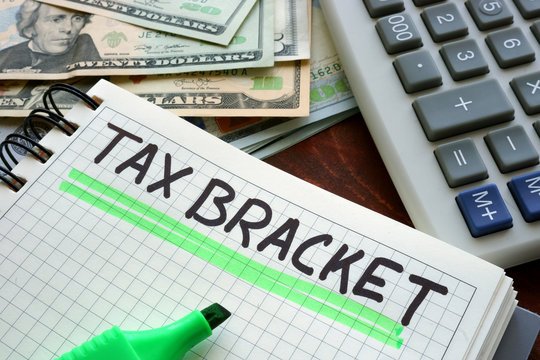An income increase is one cause to celebrate, but not so when it means higher taxes. If you think your current earnings are gradually pulling you out of the basic rate, here’s your guide to what is the higher tax bracket 2024/25.
We break down everything you need to know about stepping into the higher tax band, from understanding your tax implications to identifying how this might affect your allowances and benefits, and more.
Contents
What is the Higher Tax Bracket 2024/25?
- Basic Rate (20% on incomes between £12,571 and £37,700)
- Higher Rate (40% on incomes between £37,701 and £125,140)
- Additional Rate (45% on incomes over £125,141)

Who Pays the Higher Tax Rate?
Most UK employees pay tax at the basic rate. But when they also earn from other sources (or completely self-employed), their incomes often get dragged to the higher rate percentage of 40 tax bracket 2024/25. Note that all incomes are accounted for to determine the tax bracket by income, besides salary or wage, including:
- Bonuses, commissions, and other employment-related earnings
- Incomes from side hustles, freelancing, or gigs
- Rental incomes
- Savings interests and dividends
- Capital gains from assets or property sales
- And more
Need to Know: Dividends and capital gains tax have their own tax rules, but they are added on top of income tax bill. When your dividend income exceeds the tax-free allowance of £500 (2024/25 tax year), you will pay 8.75% (basic rate), 33.75% (higher rate), and 39.35% (additional rate). For capital gains, you will be taxed at 18% and 24%.
How Benefits Are Affected
When your income increases, so does your risk of losing eligibility for some benefits (only the means-tested types). As discussed above, you lose your personal allowance, too, once you earn over £125,140. The most prominent benefit affected once you become a higher rate taxpayer is the High-Income Child Benefit (HICB).
Once you earn over £50,000, you may face a High-Income Child Benefit Charge (HICBC).
- For every £100 over the £50,000 threshold, your Child Benefit will be reduced by 1%.
- If your adjusted net income is over £60,000 and so is your partner’s, then whoever has the higher income is responsible for paying the tax charge.
The above scenario may come as a surprise to you, especially when you are new to the higher UK tax bracket. Planning your tax affairs with a seasoned advisor prevents shocking tax bills and lost benefits you may be unaware of. Proactive tax planning will help you step into the higher bracket tax efficiently.
Tax Planning Tips
Here are some tax-efficient strategies for higher-rate taxpayers, which are usually about lowering taxable income. Consult with your tax advisor first before applying any below:
- Contribute to a Pension Scheme: One of the best ways to lower your taxable income is by putting money into a pension scheme, whether personal or workplace pension. Note, however, that the current state pension age is 66, so this is not applicable to some.
- Make the Most of ISAs: Individual Savings Accounts (ISAs) are fantastic for tax-free savings or investments. For the 2024/25 tax year, you can contribute up to £20,000 in an ISA, and any interest, dividends, or capital gains earned will not be taxed.
- Explore Tax Reliefs and Allowances: Making charitable donations or maximising business expenses can significantly reduce your taxable income. Check if you qualify for allowances like the Marriage Allowance or Blind Person’s Allowance as well.
- Consider Salary Sacrifice Schemes: If your employer offers salary sacrifice schemes for benefits like childcare or gym memberships, take advantage of them, as they can lower your taxable salary.
FAQs on UK Taxes
Yes, once your income exceeds £100,000, your personal allowance starts to decrease. For every £2 you earn over this threshold, you lose £1 of your personal allowance. This means that if your income reaches £125,140 or more, you will not receive any personal allowance, resulting in a higher tax bill.
When you earn income outside employment (e.g., rental income, pension, etc.), you will need to report (and pay tax on) these earnings to HMRC via self-assessment tax return. This is mandatory unless you earn less than the trading allowance of £1,000.
To minimise your tax liability and avoid falling into the higher tax brackets on earnings, consider strategies like pension contributions, charitable donations, and utilizing tax-efficient investments. Consult with Legend Fusions for personalised advice.
There are no specific ‘tax brackets’ for cars in the UK. However, car ownership is subject to taxes like Vehicle Excise Duty (VED), Fuel Duty, and Benefit-in-Kind (BIK) tax for company cars. These taxes can significantly impact the overall cost of car ownership, especially for higher-emission or luxury vehicles.
Get Expert Tax Advice
What is the higher tax bracket 2024/25? If this is in your search query because you anticipate stepping outside the basic rate, you are at the right place. Legend Fusions offers personalised advice on your unique tax position. Our expert team helps you clearly understand your tax obligations and find the best ways to optimise your finances. Consult with us today!
Reviewed by:

Junaid Usman
Apart from being a partner at Legend Fusions, Junaid is an expert on Business Tax including business management advisory services which has proven in the growth of company. He is a promising advisor with an ideology; “Any business success depends on the level of objectivity it maintains.”

